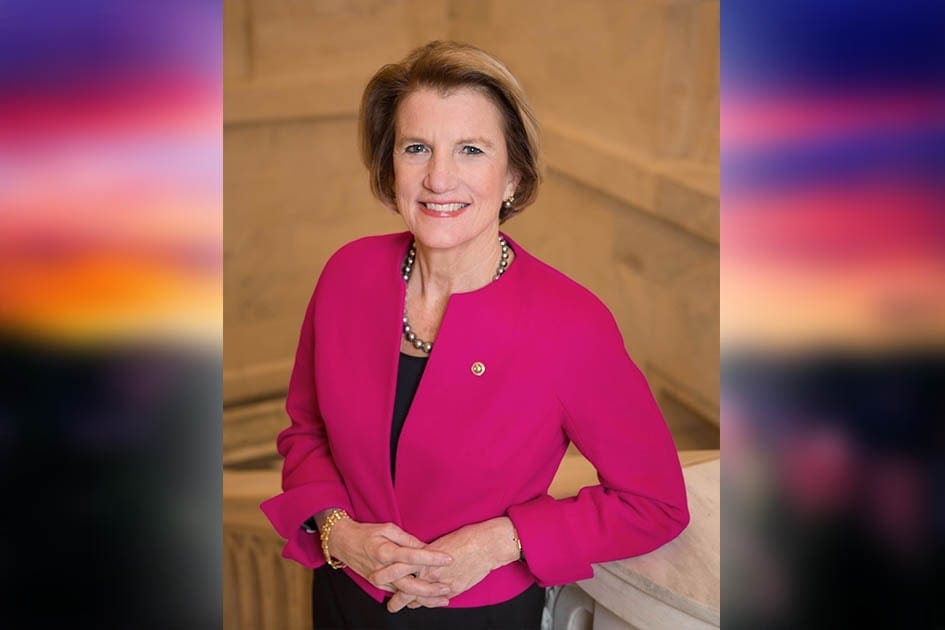CHARLESTON, W.Va. – U.S. Senator Shelley Moore Capito (R-W.Va.) and 21 of her colleagues yesterday penned a letter to the Internal Revenue Service (IRS) and the U.S. Department of Treasury calling on the agencies to automatically qualify seniors for the direct Economic Impact Payments. Last night, Treasury clarified that Social Security recipients will not need to file an abbreviated tax return, but the cash payments will be automatically deposited into their bank accounts.
Included in the coronavirus (COVID-19) phase three relief package, Congress gave the IRS the authority to waive a tax filing requirement for seniors and others who normally do not file taxes in order for them to receive the direct cash assistance. Early this week, it was reported that the IRS would require these individuals to file taxes, which created confusion among seniors in West Virginia and across the country on whether or not they would get access to the direct cash assistance.
“In this global pandemic, the last thing seniors should be worried about is more government bureaucracy keeping them from the assistance they need,” said Senator Capito. “I’m glad Treasury listened to the bipartisan concerns on this issue. West Virginia seniors can rest a little easier knowing their assistance will be in their bank accounts soon.”
Senator Capito has been fighting for West Virginia’s seniors throughout the COVID-19 pandemic, including calling for bipartisan action to crackdown on scammers who are targeting West Virginia seniors. Additionally, Senator Capito also helped secure a number of important relief measures for seniors in the three bipartisan packages Congress passed and that are now law, including:
- Broadly expanded Medicare’s telehealth services, so seniors can access more care and health services from home, including by telephone.
- Included free diagnostic COVID-19 testing and free coverage of a future COVID-19 vaccine.
- Provided additional funding for Aging and Disability Services Programs, which supports senior nutrition, home-delivered meals, community-based services, and family caregivers.
- Required Medicare Part D plans to provide up to a 90-day supply of prescription medication if a senior requests this during the COVID-19 pandemic.
Senator Capito has hosted multiple teletownhalls, speaking with constituents all across the state about their individual coronavirus concerns. She will continue to hold these regularly in an effort to hear directly from constituents, while also following social distancing guidelines.
Senator Capito has also participated in a number of teleconferences, virtual townhalls, and other Q&A discussions with small businesses, community leaders, medical professionals, hospitals, members of the press, and others where she answered questions about the federal response to coronavirus.
Senator Capito launched a page on her website to help bring current and accurate information to West Virginians during the COVID-19 pandemic. Click HERE to access the webpage for the latest updates and resources.
BACKGROUND ON SENATOR CAPITO’S CORONAVIRUS EFFORTS:
Senator Capito continues to be focused on this issue, particularly in ensuring the appropriate agencies have the funding they need to mitigate the spread of the virus, test those feeling ill, and treat those infected.
Senator Capito has been in touch with the White House directly to express the need for more testing kits and additional flexibility for West Virginia’s hospital as the situation continues to evolve. She spoke with Federal Emergency Management Agency (FEMA) Region III Administration Mary Ann Tierney about the need for more supplies for health care workers in West Virginia.
As chairman of the Homeland Security Appropriations Subcommittee, Senator Capito has made a point to ask the agencies she funds if they are prepared and ready to combat the coronavirus. Below are more details on Senator Capito’s efforts:
- Met with a number of officials, including:
- Vice President Mike Pence, CDC Director Dr. Robert Redfield, West Virginia Department of Health and Human Services (WVDHHS) Commissioner and State Health Officer Dr. Cathy Slemp, members of the Coronavirus Taskforce, and others on the issue.
- Communicated with West Virginia Department of Health and Human Resources (DHHR) Secretary Bill Crouch about the state’s testing issues.
- Spoke with West Virginia Hospital Association President and CEO Joe Letnaunchyn and West Virginia Health Care Association CEO Marty Wright.
- Voted in favor of the emergency supplemental funding package to help states treat, prevent, and prepare for the Coronavirus. A portion of the funding provided for the Centers for Disease Control and Prevention (CDC) is specifically tied to the FY2019 Public Health Emergency Preparedness (PHEP) grant awards for states and localities. In West Virginia, this means the state will receive at least $5 million in funding.
- Voted in favor of a second emergency supplemental funding package to provide economic relief to individuals, small businesses, and families during the coronavirus (COVID-19) outbreak.
- Voted in favor of a third coronavirus relief package.
- Attended a senators-only Health, Education, Labor, and Pensions (HELP) Committee briefing to ask questions directly of leadership from the Department of Health and Human Services (HHS), including the Centers for Disease Control and Prevention (CDC), the State Department, and the Department of Homeland Security (DHS).
- Spoke with West Virginia Governor Jim Justice about West Virginia’s preparedness and readiness.
- Asked various government officials about the role of the aviation industry in containing the spread of the disease.
- During two Homeland Security Appropriations subcommittee hearings:
- Questioned Transportation Security Administration (TSA) Administrator David Pekoske about TSA’s coordinating efforts with health agencies.
- Asked Department of Homeland Security (DHS) Acting Secretary Chad Wolf about the department’s efforts to monitor and control the coronavirus.
- Participated in regular conference calls with West Virginia small business owners, employers, health professionals, community leaders, hospitals, and othersimpacted by the virus to provide them with resources and information.
Click here for more information on the coronavirus.












